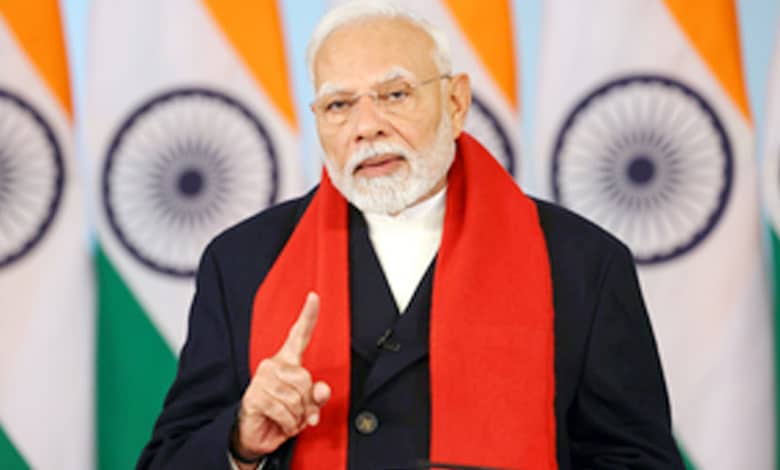Big Step for Jute-Producing Farmers: PM Modi on MSP Hike
"PM Modi announces a hike in MSP for raw jute to ₹5,650 per quintal for 2025-26, benefiting lakhs of farmers in states like West Bengal, Assam, and Bihar. Learn more about this major boost for the jute sector."

New Delhi: Prime Minister Narendra Modi announced a significant boost for jute farmers across India with the approval of a Minimum Support Price (MSP) hike for raw jute for the 2025-26 marketing season.
The move is expected to benefit lakhs of farmers, particularly in jute-producing states like West Bengal, Assam, and Bihar.
Table of Contents
Key Highlights of the MSP Hike
- Increased MSP for Raw Jute:
- The Cabinet Committee on Economic Affairs (CCEA), chaired by PM Modi, has fixed the MSP of raw jute (TD-3 grade) at Rs 5,650 per quintal for the 2025-26 season.
- This marks an increase of Rs 315 per quintal compared to the 2024-25 season.
- Farmers will receive a 66.8% return over the all-India weighted average cost of production, adhering to the government’s principle of fixing MSP at 1.5 times the production cost, as outlined in the 2018-19 Union Budget.
- Historical Growth in MSP:
- The MSP of raw jute has risen significantly under the current government, from Rs 2,400 per quintal in 2014-15 to Rs 5,650 per quintal for 2025-26, representing a 2.35 times increase of Rs 3,250 per quintal.
PM Modi’s Statement on the Hike
Taking to social media platform X, PM Modi said, “Our government has taken a big step in the interest of jute-producing farmer brothers and sisters across the country. An increase in the MSP of raw jute has been approved for the year 2025-26. This will benefit lakhs of farmers associated with this sector in many states of the country, including West Bengal.”
Impact on Farmers and the Jute Industry
- Livelihoods Supported:
- The jute industry directly or indirectly supports the livelihoods of 40 lakh farm families.
- Approximately 4 lakh workers are employed directly in jute mills and trade.
- State Contributions to Jute Production:
- West Bengal: Accounts for 82% of national production.
- Assam and Bihar: Contribute 9% each to national production.
- Procurement Highlights:
- In the previous year, raw jute was procured from 1.7 lakh farmers.
- Payments to jute farmers between 2014-15 and 2024-25 amounted to Rs 1,300 crore, compared to Rs 441 crore during 2004-05 to 2013-14.
Role of the Jute Corporation of India (JCI)
The JCI will continue as the nodal agency for Price Support Operations to ensure fair prices for farmers. The Central Government will fully reimburse any losses incurred by the JCI during these operations, ensuring financial security for both the agency and the farmers.
Also Read | Beti Bachao Beti Padhao movement instrumental in overcoming gender bias, says PM Modi
Government’s Commitment to the Jute Sector
This decision underlines the government’s commitment to the welfare of jute farmers by ensuring fair pricing and promoting financial stability in the sector. The significant rise in MSP over the years reflects sustained efforts to uplift jute farmers and strengthen India’s jute industry.
Broader Implications of the MSP Hike
- Economic Boost:
- The hike is expected to improve the financial stability of jute farmers, contributing to the rural economy.
- The increased MSP may encourage more farmers to cultivate jute, boosting production and reducing dependency on imports.
- Sustainability Push:
- Jute is a biodegradable and eco-friendly alternative to synthetic materials, aligning with global sustainability goals.
- Strengthening the jute sector could reduce the environmental impact of plastic usage.
